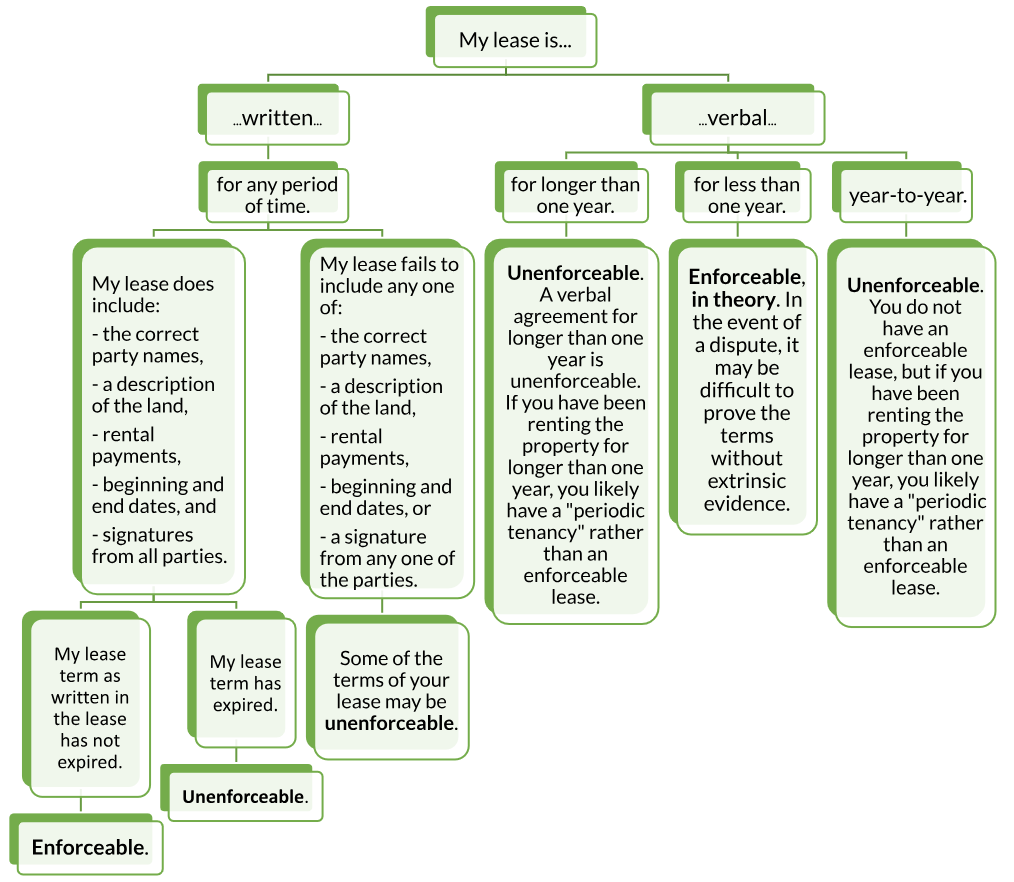This article is for educational purposes only, does not create an attorney-client relationship, and is not a substitute for competent legal advice by an attorney licensed in your state. The checklists and forms are provided only as general guidance and are not exhaustive. Suggested terms may be unnecessary in all circumstances. The authors strongly suggest that all parties consult with their own attorney when entering into or evaluating a lease agreement.
Real estate leases are governed by state law. Under Wisconsin law, a “lease” means an agreement, whether oral or written, for transfer of possession of real property, or both real and personal property, for a definite period of time.1 These leases are also a type of contract, so principles of contract law apply too.
A lease must meet the standard requirements of a contractual agreement set forth under state law to be enforceable.2 These requirements include:
☐ Identify the parties to the lease (typically the landlord and the tenant),
☐ Identify the land to be leased,
☐ Identify the interest to be conveyed (i.e. that the land is being leased and not sold or any other type of conveyance),
☐ Sets forth the amount of rent or other consideration,
☐ Indicates the beginning and expiration dates,
☐ If longer than one year, in writing, AND
☐ If in writing, signed by all parties, OR
☐ If not in writing, agreed to by all parties.
A lease is one way of establishing a tenancy on the property. Sometimes your “lease” is not really a lease (i.e. a written lease) but rather another type of tenancy (via a verbal agreement, which can still be enforceable).
Wondering if you have a valid lease? Use the decision tree in Table 1.A.1 below to evaluate your current agricultural land rental.
Table 1.A.1: Lease Enforceability

If you don’t have an enforceable lease, you may be occupying the property as a different type of tenant. For example, if your lease expired but you continued to farm the property the following year, you are likely considered a “periodic tenant” by the law.
Tenants and landlords of a periodic tenancy who originally had a written lease may still be bound by the terms of the former lease, except for any rights to renew or extend the lease, purchase the property, or have a right of first refusal on the property.
My landlord sold the farm field I was renting. Now what?
Suppose a person has leased farmland for years from a landowner. Then, without warning, the landowner decides to sell or transfer the property. An important question will immediately arise: Does the lease continue after the property is sold? As with most legal questions, it depends.
In Wisconsin: If…
☐ The lease is a year-to-year agricultural lease or a written lease, AND
☐ The lease does not restrict the tenant from transferring the lease or the landlord from selling the property (respectively), THEN…
…a tenant may transfer the lease, and a landlord may sell the property. The lease continues to be enforceable. 3
If you’re uncertain whether you have an enforceable written lease, or if terms from a prior lease still apply, you’re not alone. Learn how to start a conversation with your landlord or tenant to clarify the terms of your rental agreement.
1 Wis. Stat. § 704.01(1)
2 Wis. Stat. § 704.03(1)
3 Wis. Stat. § 704.09(1)


 Terminating a farmland lease or tenancy
Terminating a farmland lease or tenancy Negotiating the Farmland Lease
Negotiating the Farmland Lease ▶ Watch: Negotiating Agriculture Leases
▶ Watch: Negotiating Agriculture Leases Navigating Lease Agreements for Small Acreage, High Value Crops
Navigating Lease Agreements for Small Acreage, High Value Crops


